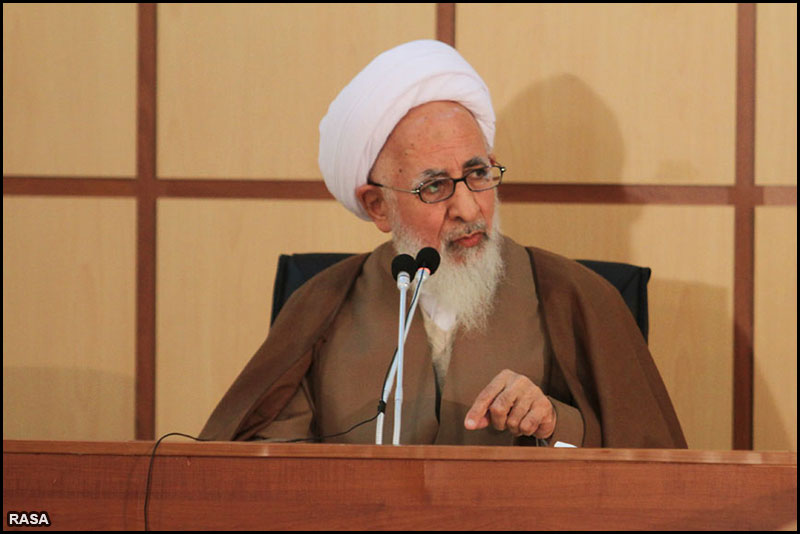
RNA - Eid al Adha or the feast of sacrifice in the Islamic culture is one of the most important celebrations when Muslims, particularly Hajj pilgrims sacrifice some lambs, cows or camels as an act of submission to God, following the model of Prophet Abraham (PBUH) when he wanted to sacrifice his beloved son Ismail.
A major celebration among Muslims, different Islamic figures relate on the meaning of the event every year.
According to Taghrib News, prominent Iranian cleric counted the features of Eid for the world of Islam calling that a day when some people accept the mission to keep the holy religion of Islam and prayer as its pillar.
Grand Ayatollah Abdullah Javadi Amoli, noted, "The most important point noted by us in Eids is that, based on justice in the holy religion of Islam, the birthday of no outstanding character in Islam is called an Eid, for instance the birth anniversary of Prophet Mohammad (PBUH) or a member of his household, Ahlul Bayt (AS).
Certainly we are happy and we celebrate the occasion but it is not a formal eid for us since we call the day as eid when some people accept the mission to safeguard the pillar of religion, a day when prayers are recognized and a group of people gather to perform mass prayers and this is not for one particular person, rather it is concerned with a school of thought. And this is the first principle.
The Meaning of Eid
The second meaning is the reason why these two days (Eid al-Fitr and Eid al-Adha) are called eids? Whenever one has a responsibility and was fully committed to his responsibility, returned to his originality and his true self, then that day is an Eid. When he has made a return to his originality, to his beginning, then that is an Eid.
We celebrate two such returns, one is the holy month of Ramadan when we are recommended to fast during the day and pray during the night and having carried out our duties for one month then we celebrate Eid al Fitr satisfactorily, we pray and celebrate the occasion as Eid.
Also on tenth of Dhu al-Hijjah, when Hjj pilgrims fully perform Hajj rituals then that is also called an eid.
Islam attends schools of thought and not particular persons
Therefore, it is not a person rather a school of thought which matters the most in Islam and the second principle is that he fully performs two formal missions and satisfied over knowing his original self he celebrates the occasion as eid.
The secret is that sometimes the person is a narrow-minded person when he sees only a short distance ahead and finds man as a mortal being who rots soon after death or he might think that man is freed from his worldly being and becomes immortal. The question is what we should do if the second viewpoint is correct. We should provide some everlasting commodities. If death was an end by which people would end lying in a grave, then there would be no necessity for all those prophets. But if he leaves this body for a final life then according to the guidelines of the prophets, there will be a prize and a punishment. Therefore when man understands these meanings, then he is related to his originality so that he celebrates when he is satisfied and victorious. That is why it is eid al-Adha only when man is done with all those rituals.
We are also recommended to make sacrifices because we also take the same path and when man makes his way to his originality then he celebrates the occasion. Fridays are also eid for us due to the prayer we perform while the best eid for us, Shia Muslims, is Qadir Eid (when Imam Ali (AS), cousin and son-in-law of Prophet Mohammad (PBUH)was appointed as the successor and leader of the Muslims on the way back from the last Hajj pilgrimage performed by Prophet of Islam (PBUH)).
R111/108/C/